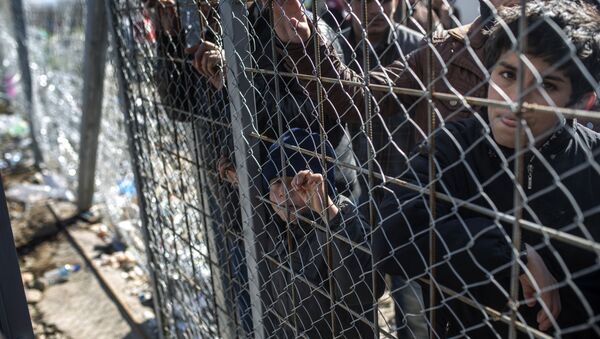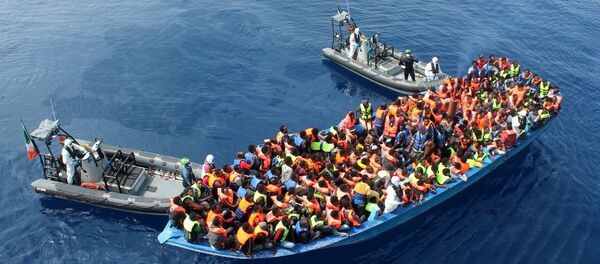Last week Juncker said there was a "big risk" of the "fragile" deal collapsing, and on Wednesday Kern said that Turkey should not be viewed as a potential candidate for EU membership, and that its accession process should be stopped.
On July 19 EU's Commissioner for Digital Economy & Society Gunther Oettinger told Germany's Funke Mediengruppe that Turkey will not receive visa-free travel this year, saying that Ankara has not met the necessary conditions.
"Erdogan has to make concessions to us regarding the respect of the rule of law, and it doesn’t look like it is happening now," Oettinger said, in the immediate aftermath of the failed military coup in Turkey.
However, on July 31, Turkish Foreign Minister Mevlut Cavusoglu threatened that Ankara will break the agreement unless its citizens are granted visa-free travel to the EU, and gave the EU a deadline of October.
"It could be the beginning or end of October, but we are waiting for a firm date," Cavusoglu told Germany's Frankfurter Allgemeine Zeitung.
Cavusoglu warned that if Turkey does not receive visa-free travel, then "we will be forced to withdraw from the March 18 agreement," which contains 72 requirements that Ankara must meet in order to get up to 6 billion euros in financial aid, a speeding up of the EU accession process, and visa-free travel in the Schengen zone for Turkish citizens.
In return, the EU wants Turkey to control its borders and prevent illegal migration via the Balkan route to Europe, which enabled more than a million refugees and migrants to travel to the EU in 2015.
During negotiations over the deal, President Erdogan threatened EU leaders that "we can open the doors to Greece and Bulgaria anytime and we can put the refugees on buses."
In May EU leaders told Germany's Bild they fear the failure of the migrant deal, and said they are working on alternative plans to stop refugees and migrants coming to Europe.
Ozturk Turkdogan, President of Turkey's Human Rights Association, told Sputnik that the agreement with Turkey was doomed to failure from the start.
"First of all, I want to say that from the very beginning, we said that the migration agreement between Turkey and the EU is unacceptable from the point of view of human rights for the refugees."
Turkdogan said that the EU needs Turkey for any functional plan to stop the flow of refugees, and that European countries should focus instead on regulating the conflict in Syria.
"The Plan B the EU is talking about can only work for those refugees which are already in Greece. But if we are talking about Syria or refugees in Turkey, then any 'Plan B' or 'Plan C' or any other plan won't work without Turkey."
"In our opinion, they are not necessary. Europe is not trying to solve the (real) problem, but its consequences. After all, the source of the problem is in Syria and it is clear that without regulating the conflict the problem with refugees can't be solved. And that problem has to be solved through peace talks with the participation of all the democratic forces of Syria," Turkdogan said.
"Otherwise, no plans can help. The refugees will come to Europe one way or another," he said.




